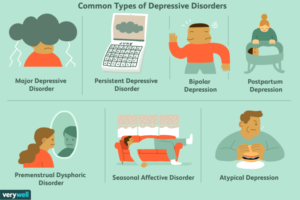
Welcome to the whimsical world of self-care routine, where you can toss your stress into a black hole and emerge with a fluffy unicorn of tranquility! Ever wondered how to sprinkle a bit of happiness into your daily grind? Well, buckle up because we’re diving into the delightful essentials of self-care! From mindfulness magic to daily activities that would make even a stressed-out squirrel sigh with relief, we’re here to ensure you don’t just survive the day but thrive in it!
Imagine a life where self-care isn’t just a trendy hashtag but a glorious lifestyle! We’ll explore how to tailor your routine to not only boost your mental wellness but also address specific health needs, like juggling asthma or calming autism with structure. You’ll also discover how to tackle that pesky back pain while turning your skincare routine into a self-love parade.
So, let’s get this self-care party started!
Self-Care Routine Essentials
In the chaotic carnival of life, self-care acts as our cotton candy—sweet, fluffy, and sometimes messy, but oh so necessary! A basic self-care routine is not merely a checklist of pampering but a vital investment into our mental well-being. It reminds us to pause, breathe, and indulge in the little joys amidst life’s whirlwind.A well-rounded self-care routine incorporates various components that boost our physical, emotional, and mental health.
Essential elements include adequate sleep, nourishing meals, physical activity, and social connections. Each of these components plays a vital role in maintaining a balanced life. For instance, think of sleep as your phone’s battery—depleted? Get ready for a night of low energy and crankiness!
Daily Self-Care Activities that Promote Mental Well-Being
Integrating daily self-care activities into your routine can enhance mental well-being, akin to adding sprinkles to your ice cream—just makes everything better! Here’s a list of activities that can transform your day from “meh” to “magnificent”:
- Morning Stretching: A few minutes of stretching can feel like giving your body a warm hug—embracing the day ahead.
- Mindful Breathing: Take a moment to breathe deeply. Inhale positivity and exhale negativity. It’s like a mental detox without the kale.
- Gratitude Journaling: Write down three things you’re grateful for each day. It’s hard to feel grumpy when you’re counting your blessings like a millionaire counting their cash!
- Nature Walks: A stroll in nature is like a reset button for your brain. Bonus points if you can talk to a tree about your problems!
- Digital Detox: Spend some time away from screens. It’s like a vacation for your eyes—no passports required!
- Creative Expression: Whether it’s painting, writing, or dancing like nobody’s watching, unleash your inner artist. Who cares if it looks like a toddler’s masterpiece?
Importance of Mindfulness and Relaxation Techniques in Self-Care
Mindfulness and relaxation techniques serve as the zen masters of our self-care journey. They help us cultivate awareness and serenity in a world that often feels like it’s on fast-forward. Practicing mindfulness allows us to tune into the present moment, reducing stress and enhancing emotional resilience. Consider incorporating techniques such as meditation, yoga, or even progressive muscle relaxation. The importance of these practices can be summarized in a simple yet profound formula:
Mindfulness + Relaxation = A Happier, Healthier You!
Engaging in these practices regularly can lead to profound changes in your mental landscape. Visualize yourself meditating on a peaceful beach, waves gently lapping at your feet while the sun kisses your skin. It’s a mini vacation for your mind, promoting clarity and emotional stability. So, dive into the world of mindfulness and relaxation; your brain will thank you with fewer gray hairs and more smiles!
Health and Self-Care Integration
In the whimsical world of self-care, integrating health considerations takes our pampering practices to the next level. When we think self-care, it’s not just bubble baths and scented candles—oh no! It’s about the fine balance of pampering ourselves while keeping our bodies feeling fabulous. Let’s dive into the unique self-care practices that can help certain health conditions and make the journey to wellness both effective and a little more entertaining.
Self-Care Practices for Individuals with Asthma
Asthma can be a real party pooper, but fear not! Self-care practices can transform your experience from wheezy to breezy. Managing asthma doesn’t mean you have to skip out on life’s fun; it just means adding a few extra steps to your routine. Here are some self-care practices that can help keep the asthma blues at bay:
- Breath of Fresh Air: Create a clean environment by reducing dust and allergens. Regularly change your air filters like you change your socks—often!
- Stay Hydrated: Water is your best friend! It helps thin mucus in the airways. Aim for eight glasses a day, or drink like you’re preparing for a marathon!
- Yoga and Breathing Exercises: Channel your inner yogi! Deep breathing techniques can help expand lung capacity and reduce stress. Just remember, no one likes a wheezy downward dog!
- Know Your Triggers: Identifying triggers is key. Whether it’s smoke, pollen, or that questionable leftover in the fridge, avoiding triggers can help keep you feeling fine and dandy.
“An ounce of prevention is worth a pound of cure—especially when that cure involves a hefty inhaler!”
Tailored Self-Care Routines for Individuals with Autism
Structure is the name of the game when it comes to self-care routines for individuals with autism. A predictable routine can offer a sense of safety and stability, making the world a bit less overwhelming. Here’s how to effectively integrate self-care into daily life:
- Visual Schedules: Use pictures or charts to Artikel daily activities. This way, individuals can see what’s coming next and prepare mentally for transitions.
- Routine Check-In: Take a few moments each day to check in on how things are going. Adjust routines based on what’s working or not—flexibility is key!
- Mindfulness and Calm Down Spaces: Create a designated area for relaxation equipped with calming items like fidget toys or soft lighting. A little zen goes a long way!
- Incorporate Interests: Use personal interests to enhance routines. If someone loves trains, incorporate train-themed activities into their day to keep them engaged and excited!
“Routine isn’t just about repetition; it’s about creating a sanctuary of predictability in an unpredictable world.”
Self-Care Strategies for Alleviating Back Pain
Back pain is like that uninvited guest who overstays their welcome—nobody wants it around! Incorporating self-care strategies can help alleviate discomfort and promote physical wellness. Here’s how to kick that back pain to the curb:
- Stretch It Out: Regular stretching can help relieve tension and improve flexibility. Just don’t attempt to stretch like a pretzel on your first try—ease into it!
- Strengthen Core Muscles: A strong core supports your back. Exercises like planks and bridges may make you feel like a superhero while battling back pain.
- Warm Baths: Soaking in a warm bath with Epsom salts can ease muscle tension. It’s like giving your back a mini-vacation!
- Good Posture: Sit and stand tall! Maintain good posture to reduce strain on your back. Imagine a string pulling you up from the crown of your head—no slouching allowed!
“Treat your back right, and it will treat you right—just like a good friend who knows how to listen!”
Broader Health Implications

In today’s rapidly spinning world, self-care is not just a luxury but a necessity, especially when it comes to our health and well-being. From childhood obesity to mental health management, self-care practices can significantly enhance our lives. Let’s dive into the details of how we can use self-care as a tool for better health outcomes, shall we?
Self-Care Plan for Preventing Childhood Obesity
Childhood obesity has reached alarming levels, but with a proactive self-care plan, we can turn the tide. This plan focuses on creating a balanced lifestyle for children through diet, physical activity, and supportive environments. Here are essential components to consider:
- Nutrition Education: Teach children about healthy food choices, emphasizing fruits, vegetables, and whole grains over processed snacks.
- Regular Physical Activity: Encourage at least 60 minutes of active play daily. This could be dancing like nobody’s watching or playing tag until you’re out of breath.
- Limit Screen Time: Set a maximum of two hours of recreational screen time a day. This makes room for more fun outdoor adventures!
- Family Meals: Aim for regular family meals to foster healthy eating habits and bonding. Remember, the family that munches together, stays together!
- Positive Role Models: Adults should model healthy behaviors, because kids often think adults are just oversized versions of themselves.
Self-Care Practices that Enhance Health and Beauty
Self-care isn’t just for the soul; it can work wonders for your skin and body too! A well-rounded routine can refresh your health and beauty regimen, making you feel and look fabulous, even if you are just lounging in your pajamas. Important practices include:
- Skincare Routine: Establish a daily skincare routine that includes cleansing, toning, and moisturizing. Use products that suit your skin type, because nobody wants to look like a greasy pizza!
- Hydration: Drink plenty of water. Hydration is key to glowing skin and can even help reduce those overly dramatic “I woke up like this” moments.
- Balanced Nutrition: Incorporate foods rich in vitamins and antioxidants, like berries and avocados. Eating your way to beauty? Now that’s a win-win!
- Regular Exercise: Exercise not only helps maintain your weight but also boosts your mood and energy levels. Who doesn’t feel like a superhero after a good workout?
- Mindfulness and Relaxation: Engage in self-care practices like meditation or yoga, which can help reduce stress and promote better skin health. Remember, a peaceful mind can lead to a peaceful face!
Role of Self-Care in Managing Depression and Mental Health Issues
Managing depression and mental health issues is like navigating a maze—you need tools to find your way out. Self-care can be your guiding light in this process. Here are some vital elements that contribute to mental well-being:
- Routine Development: Establishing a daily routine can provide structure and a sense of control, which is essential during tough times.
- Social Connections: Engaging with friends and family helps combat isolation. Just remember, a good laugh—preferably over pizza—can heal the soul!
- Physical Activity: Regular exercise releases endorphins, the “feel-good” hormones. So, let’s dance, jog, or just bust out those crazy moves at home!
- Professional Support: Seeking help from mental health professionals is a sign of strength, not weakness. They can provide support and strategies tailored to individual needs.
- Creative Outlets: Engaging in hobbies like painting, writing, or even knitting can provide an escape and a way to express feelings. Plus, who doesn’t love a homemade scarf?
“Self-care is not selfish; it’s a vital part of maintaining health and well-being.”
Last Point

As we wrap up this delightful journey through the realms of self-care, remember that it’s not about becoming a zen master overnight—it’s about finding those little moments that bring you joy! Whether it’s a calming cup of tea, a reassuring stretch, or simply laughing at a silly meme, the key is to embrace the quirks of your routine. So go forth, dear reader, and sprinkle a little self-care pixie dust over your day.
You deserve it!
Q&A
What exactly is a self-care routine?
A self-care routine is like a spa day for your soul, where you indulge in activities that nurture your mind and body!
How can I start a self-care routine?
Start small! Pick one activity you enjoy, like journaling or a leisurely walk, and make it a daily habit!
Is self-care selfish?
How long should my self-care routine take?
It can be as short as 10 minutes or as long as a leisurely afternoon—whatever fits your schedule and makes you happy!
Can self-care help with anxiety?
Yes! Engaging in self-care activities can soothe anxiety by promoting relaxation and a more positive mindset.





